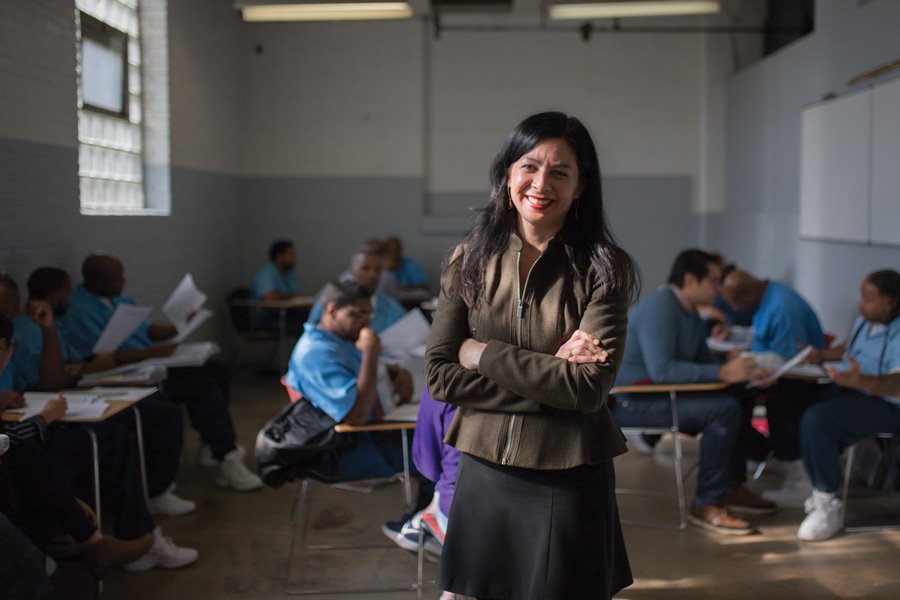Activists, authors share personal stories in prison abolition roundtable
NPEP Director Jennifer Lackey. Lackey and NPEP hosted a roundtable discussion on prison abolition featuring activists with firsthand experience of the criminal justice system.
February 10, 2021
Abolitionists shared firsthand experiences with the prison-industrial complex as part of a community roundtable series hosted Tuesday by the Northwestern Prison Education Program.
NPEP Director Jennifer Lackey opened the event, which was co-sponsored by One Book One Northwestern.
“This roundtable series aims to open space for conversation on these critical topics and to bridge research, legal work, policy and community activism in addressing them,” Lackey said.
Maya Schenwar, editor in chief of Truthout, a publication focused on social justice issues, opened her talk by discussing the one-year anniversary of the death of her sister, who had been incarcerated.
Her sister, Keeley, was on probation when she died of an overdose. She had been forced into an abstinence-based drug program, which left her vulnerable, Schenwar said. Keeley died while hiding from the police, Schenwar said, because “that’s what you do so often when you are a criminalized drug user.”
“When my sister was incarcerated — that’s part of what shocked me into the reality that no one should be locked in,” she said. “It reminds me every single second that abolition needs to go beyond getting rid of the brick and mortar buildings that we call prisons. When Keely died, she was technically free, but she was still in the clutches of the system.”
In addition to getting rid of prisons, abolition means dismantling a system of surveillance and policing, Schenwar said. It also means rejecting reforms that simply try to create “nicer prisons,” she added.
While people tend to dismiss abolition as an unfeasible goal, Schenwar urged attendees to look at the ways activists and communities around the country are already practicing abolition, citing how several major cities have canceled their public schools’ contracts with police since summer protests for racial justice.
Robert Saleem Holbrook, executive director of the Abolitionist Law Center, said he sees abolition as a reinvention of policing and punishment. Holbrook, who was incarcerated for 27 years, said he was always convinced prisons were ineffective. He said it took seeing abolition as a transformation of society for him to embrace the concept.
“If you believe that we can have prison abolition or police abolition and not abolish the social contract of America — not abolish the institutions of white supremacy that have governed this country since its founding — then you’re missing the point,” he said.
However, Holbrook said he also sees the importance of working with reformists to immediately reduce the harm prisons cause. Abolitionists have to approach conversations with prison administrators almost like a hostage negotiation, he said, sometimes pushing for urgent relief over all-or-nothing demands.
Holbrook said he pushes for abolition not by trying to get into meetings with departments of corrections, city councils or legislators, but rather by community organizing. People of power in the prison-industrial complex often refuse to speak to abolitionists, but they cannot ignore widespread, community support, he said.
“You may not want to invite us to that table, but because we organize not just in the city but statewide, we built our own table,” Holbrook said. “We got this raggedy table, (and) we have no problem pushing it up to beside your table and being like, ‘Okay, we’re here, you’re gonna have to deal with us.’”
Email: [email protected]
Twitter: @maiapandey
Related Stories:
— NPEP hosts second roundtable in “Race, Racism, and Policing” series
— Keith LaMar addresses Northwestern community from solitary confinement on death row
— NU profs. and criminal justice researcher discuss juvenile justice reform


